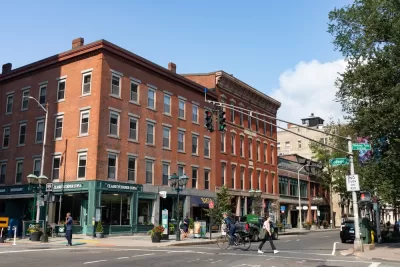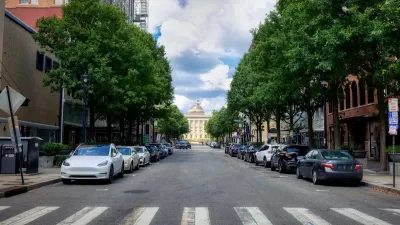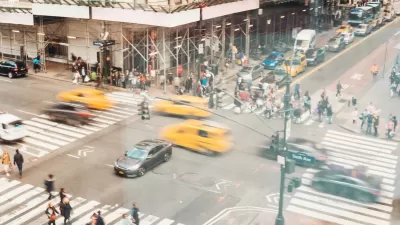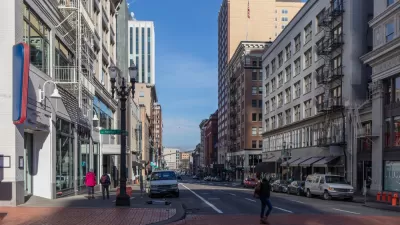The proposed legislation could energize efforts to eliminate fatal crashes and fix the structural flaws that make roads inherently more dangerous.

A bill making its way through the Connecticut state legislature would codify the state’s commitment to Vision Zero and require municipalities to actively plan for safer and more accessible roads for all users. In an op-ed published on CT News Junkie, Kerri Ana Provost argues in favor of the bill, pointing out that “One month into 2023, 42 collisions resulting in 43 pedestrian deaths during 2022 were entered into the [Connecticut Crash Data Repository] database.”
Provost parses the data to understand the nature of the crashes, revealing that pedestrian distraction did not factor into any of the fatal crashes in 2022. “Looking back at 2021, only two of the 58 victims were noted as being distracted, and the nature of it was described as being outside of a vehicle, not on a phone.”
Among other initiatives, the bill would require cities to create Complete Streets or Comprehensive Safety plans and allow automated traffic enforcement, which is shown to reduce serious crashes. Provost urges legislators to support the bill and its promise for systemic change, noting that making streets safe for all is about much more than just telling pedestrians to be more careful. “Instead of shunning victims of traffic violence for a split-second poor decision they may have made, we should look at how our system sets us up for failure.”
Traffic safety advocates around the country are making similar calls for reorienting road safety efforts toward addressing infrastructure and design issues rather than focusing singularly on pedestrian and driver awareness and education.
FULL STORY: Vision Zero Bill Would Address Causes of Pedestrian Crashes

Planetizen Federal Action Tracker
A weekly monitor of how Trump’s orders and actions are impacting planners and planning in America.

San Francisco's School District Spent $105M To Build Affordable Housing for Teachers — And That's Just the Beginning
SFUSD joins a growing list of school districts using their land holdings to address housing affordability challenges faced by their own employees.

The Tiny, Adorable $7,000 Car Turning Japan Onto EVs
The single seat Mibot charges from a regular plug as quickly as an iPad, and is about half the price of an average EV.

As Trump Phases Out FEMA, Is It Time to Flee the Floodplains?
With less federal funding available for disaster relief efforts, the need to relocate at-risk communities is more urgent than ever.

With Protected Lanes, 460% More People Commute by Bike
For those needing more ammo, more data proving what we already knew is here.

In More Metros Than You’d Think, Suburbs are Now More Expensive Than the City
If you're moving to the burbs to save on square footage, data shows you should think again.
Urban Design for Planners 1: Software Tools
This six-course series explores essential urban design concepts using open source software and equips planners with the tools they need to participate fully in the urban design process.
Planning for Universal Design
Learn the tools for implementing Universal Design in planning regulations.
Smith Gee Studio
City of Charlotte
City of Camden Redevelopment Agency
City of Astoria
Transportation Research & Education Center (TREC) at Portland State University
US High Speed Rail Association
City of Camden Redevelopment Agency
Municipality of Princeton (NJ)





























